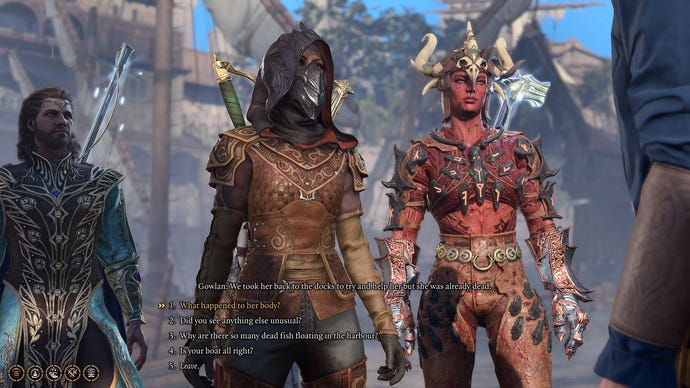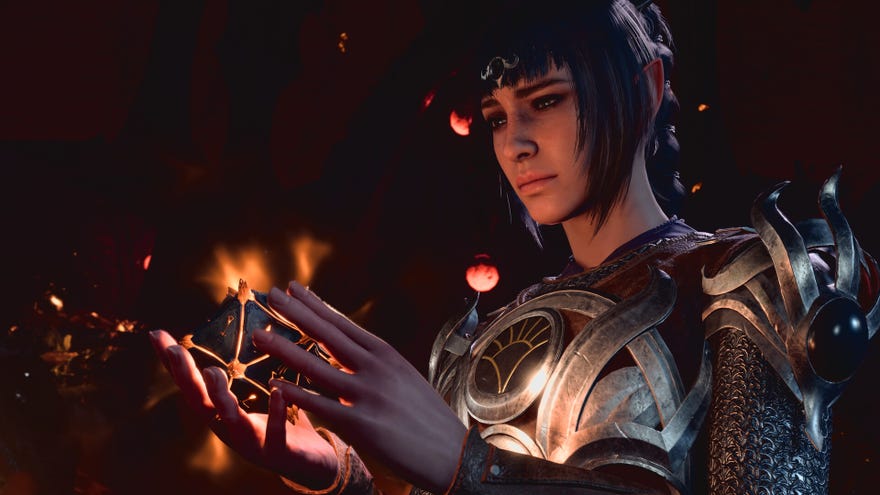Baldur’s Gate 3 studio will likely bring their next game to early access again, but admit it’s not for every dev
It’ll be a work-in-progress for a while, if Larian's past RPGs are anything to go by
It’s odd to think back on a time before Baldur’s Gate 3 - and even stranger to think that the sprawling Dungeons & Dragons RPG was actually kicking around for a long while before its 1.0 release blew up awards shows, social media feeds and fan-fiction hubs last summer. Putting the game out into early access at the end of 2020 - multiple years before it was ready for a full release - worked out very well for Larian though, so it’s maybe no surprise that they plan to do exactly the same with whatever comes next.
In fact, the studio’s director of publishing Michael Douse told GameFile, Larian really consider that early access is "the only way to do it now", highlighting the ability to “create a situation where you have a constant dialogue with the players” while continuing to work on a game they can already get their hands on. (Thanks, Eurogamer.)
On a simple level, Douse said the immediate reception of players during early access means that if there are things that they aren’t enjoying, developers can change or remove them without having already tied their completed game to them.
“That way you remove a lot of the prediction,” Douse said. “When you release a game in triple-A, whatever method, [if] you don't have early access, you're taking a huge bet on the fact that this is good and people like it. In early access, you find out very quickly. It helps you steer the massive ship.”
That said, Douse acknowledged that early access isn’t something that every developer should do just because it’s there. While it’s been successful for Larian for games such as Baldur’s Gate 3 and Divinity: Original Sin 2, Douse said that there can be an expectation that early access games will receive a stream of constant updates and fresh content more akin to live-service titles, putting pressure on devs.
“It's scary,” Douse said. “It turns your company sort of into a live service company, because you've got to feed that machine.”

Larian, in contrast, managed to keep players happy with a slower frequency of updates and additions - but it was something that they worked hard to be clear about from the off, the developer suggested.
“We were very open about not doing that,” Douse explained. “[We said,] 'We're not going to add story. Don't expect that.’ We didn't really add content. We added some, but we really slowed down. Setting expectations is really key. It's just going to be this one sort of fractal loop that's going to sort of adapt.”
In all, Douse recommended that other developers avoid leaping in unless they know what they’re doing, while espousing the benefits of growing a dedicated following during an early access period - if you can pull it off, that is.
“If you don't know how to do early access, I wouldn't do early access,” Douse said. “But if you are interested in creating a really strong core gameplay loop and then building around that, to foster a strong community, that's a really good way to do it. It's probably the best way to do it.”
While Larian are yet to reveal what their next game will be - fair enough, given how long they worked on Baldur’s Gate 3 both before and since its release - we do know that they’re done with Baldur’s Gate and D&D for now, having handed both back to the tabletop RPG’s makers Wizards of the Coast.
“I understand there will be disappointment because people fell in love with what we created but it was a story with a beginning, middle and an end and it doesn’t need more,” said CEO Swen Vincke last month. “I’ve never been more sure about a strategy shift. This is the right thing for Larian.”
If nothing else, Larian are certainly a studio that appear to know what works for them - and it’s worked out pretty well for us so far, too.















.jpg?width=291&height=164&fit=crop&quality=80&format=jpg&auto=webp)
